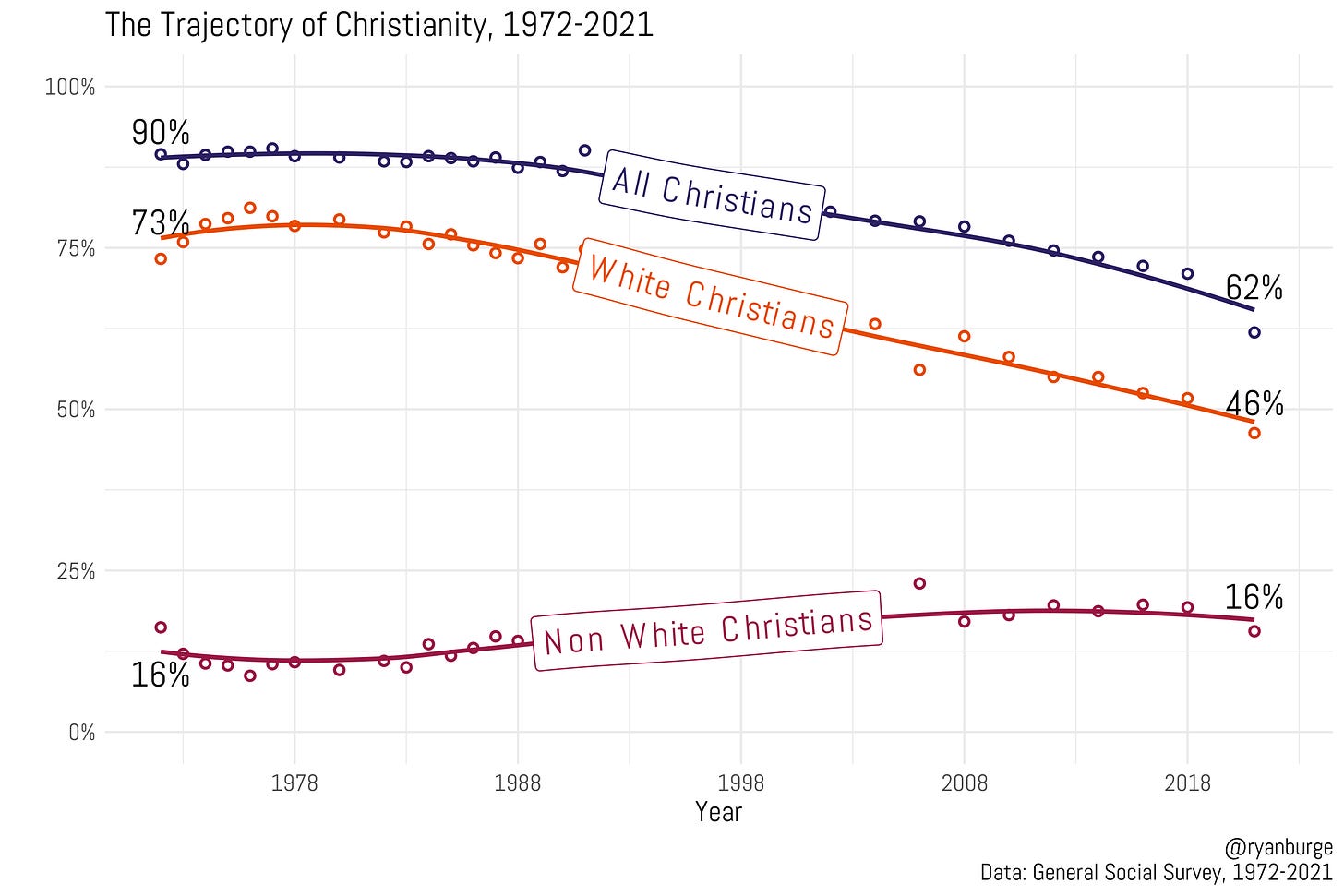Most Americans Are Still Christians
Can we pump the brakes on the post-Christian America talk, please?
Don’t forget that I am offering a discount on subscriptions through December 25th - $40 for the year. You can take advantage through this link.
For some folks, there’s always something about people use big data sets that irks them. I hear it in the comments of my posts sometimes. Things like, “Why don’t you write about Unitarians?” Or, “why are all your posts about Christians, you know that there are other religious groups out there, right?” I do understand that there are other religious groups in the United States, in fact I am writing a textbook about the American religious landscape for Oxford University Press. There are entire chapters devoted to groups like Muslims, Buddhists, and Hindus. But, there are two reasons why I focus most of time on writing about Christians on my Substack.
Whenever I write a post about a non-Christian/non-none religious group, my view count is noticeably lower. Since August 31st, I have a written a post about the politics of Muslims in the 21st Century and another post about the concept of secular Judaism. Those two posts represent the least amount of traffic of anything that I have written in the last three months. And, at the end of the day, I get a bigger dopamine hit when I see my view count climb. Yes, I am an awful person but I am a capitalist who has been conditioned to engage in activities that generate more revenue. The more clicks → more free subscribers → more paid subscribers. So, I am incentivized to write about topics that get a lot of attention. That’s not to say that I am going to ignore all those smaller religious groups, but I am not going to be writing about them a significant amount. You’re welcome/I’m sorry.
There are still a whole lot of Christians in the United States. That’s a statistical fact that some people just can’t seem to fully wrap their heads around. Yes, Buddhists matter. So do Wiccans and Jedis and any other really small religious group. They all matter. But politics is a numbers thing. About 90% of Muslims voted for Joe Biden in 2020. But if all 90% of those Biden Muslims in 2020 changed their votes to Trump in 2024, that would barely make a dent in the outcome of the election. If 3% of Catholics switched from one party to the other at the ballot, that would very likely impact who will be sitting in the Oval Office in January of 2025.
The point of this post is to just lay bare a very simple statistical reality - the United States is still a majority Christian country. It has been (as best we can tell) majority Christian since the Colonial Period and will likely continue to be that way for at least the next several decades. In politics, there is no more consequential vote than the Christian vote. Nothing else even comes close.
Let’s start with data from the General Social Survey. My definition of Christian includes these groups: Protestants, Catholics, Orthodox (Russian/Greek/Eastern), Latter-day Saints, and people who describe their religion as “Just Christian” on surveys. I’m sure someone is going to want to tell me that LDS aren’t Christians in the comments. Feel free to unload. But at the end of the day about 1% of all Americans are Mormons, so it’s not like that’s going to have a big impact on the numbers presented below.
In 1972, 90% of all respondents to the General Social Survey were Christians. Yes, that’s basically everyone. You want actual numbers?




